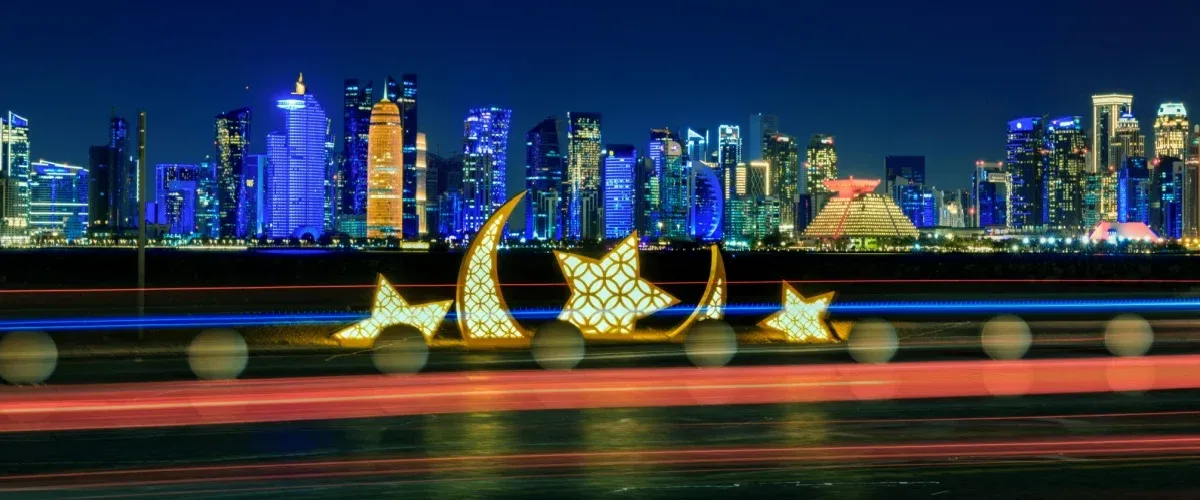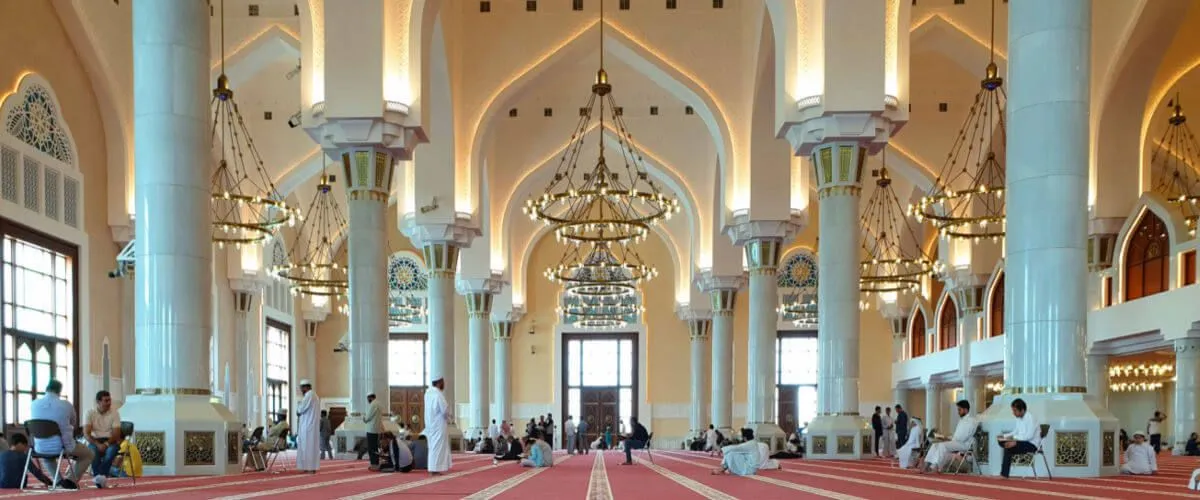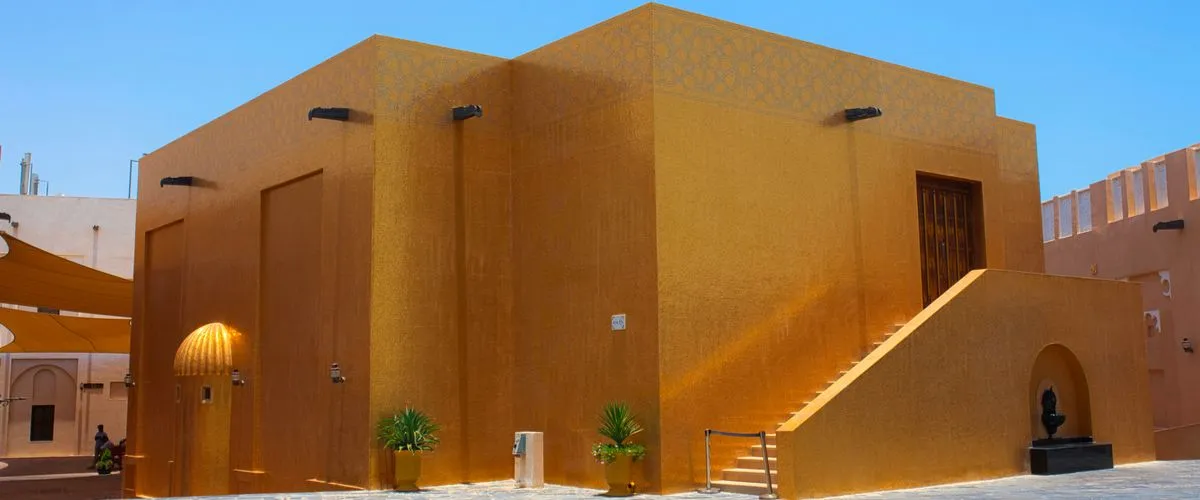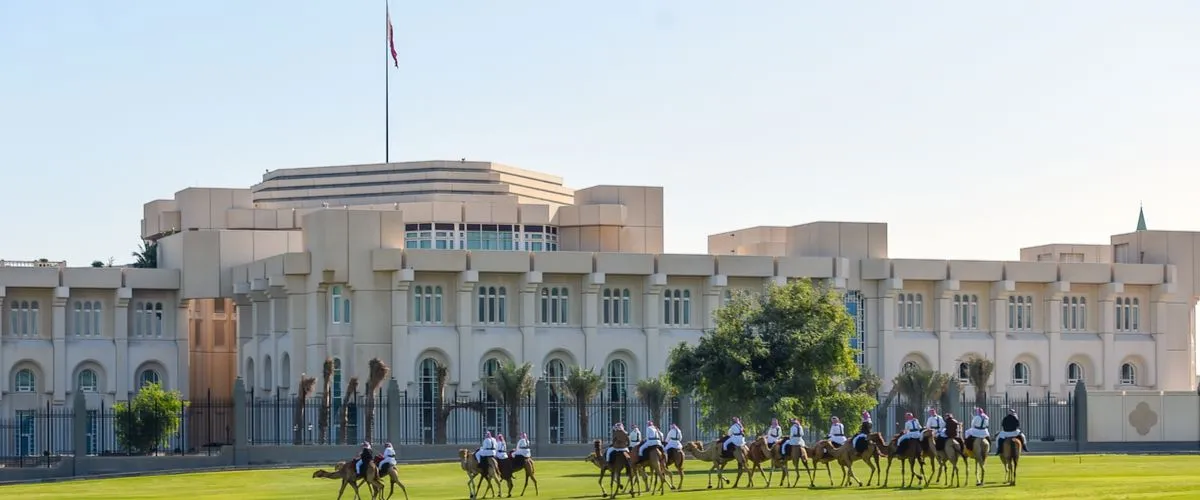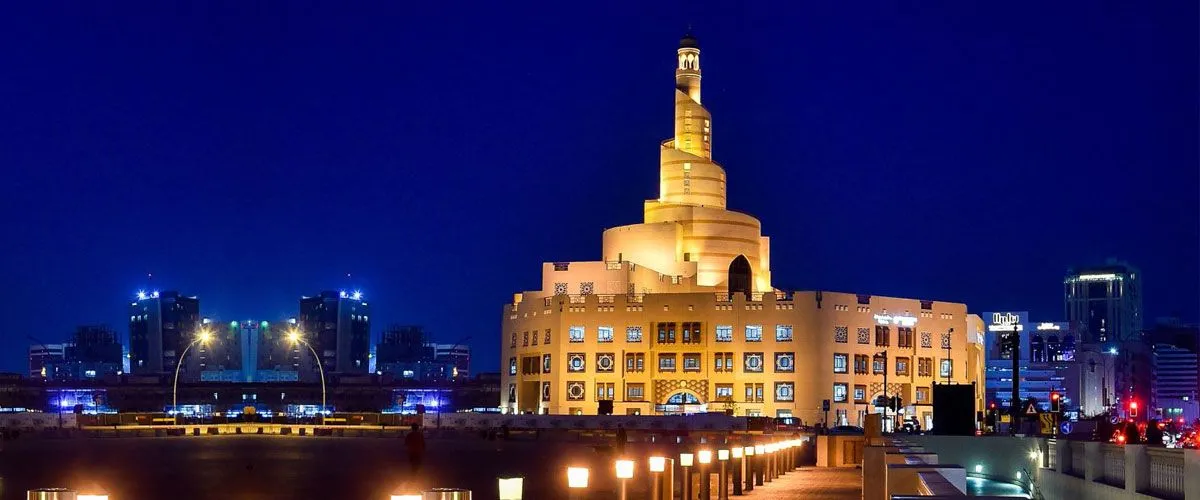When it came to the grand mosque Doha, the aim was to remove negatives and unwanted innovations in Islam, which was propagated by Ibn Abdul Wahab. The Muslims were restricted within the values of Islam typified by the Salaf and removed exploitations introduced by bidah in his teachings.
Situated in the Jubailat district of Doha south of corniche, high on the hill overlooking the Qatar sports club, the state mosque was built in the early 20th century. The Doha grand mosque boasts of an imposing building with several domes built with a blend of traditional Arabic and modern architecture, that includes a sparkling half-moon, a minaret and large outdoor spaces. It gives a fresh feel with crispy lines as it preserves some of the Islamic architectural elements with its fine doomed roof. The mosque is a fine example of architectural magnificence and landmark construction.
The state grand mosque Qatar was built in memory of Sheikh Jassim Bin Mohammed Al Thani’s father. The story behind it is that in 1878, when the Sheikh heard of his father’s death while coming back from a military campaign, he decided to build the mosque, which tells the story of Doha with sandstone facades. The height of the building and the domes are similar to the constraints of the building that were once present during the early years of Qatar.
The place was refurnished in 2006 and is at present is about 175,000 square meters. Over 10,000 men offer their prayers in the AC central hall of the mosque and is spacious enough to have at least 1300 women. There are 3 main doors and 17 side entrances to the mosque along with 65 domes that cover the outer quadrangle and 28 large domes that cover the central hall. The mosque is home to over 30,000 people including the outdoor area, one of the best places to visit in Qatar.
The Experience Of Visiting The Mosque
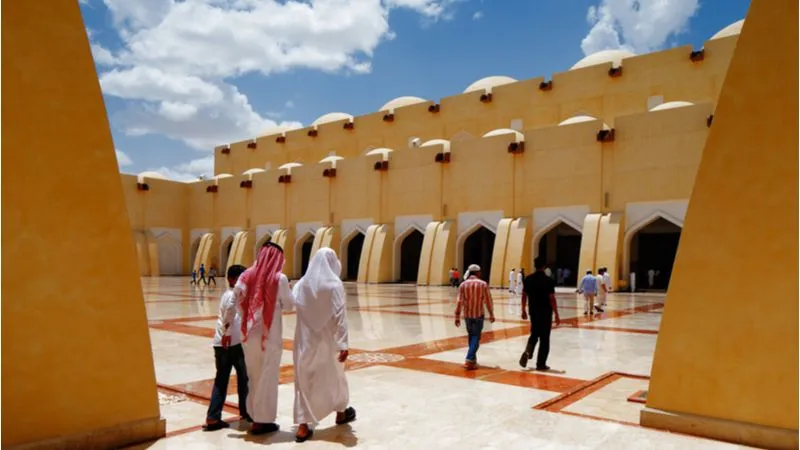
Entering the halls of the monumental structure of worship offers a spiritual feeling of calmness, tranquility and ideal well-being. Even if you're not a Muslim, you can enter the mosque in Qatar, just remember to wear decent clothes.
Guidelines of The Mosque
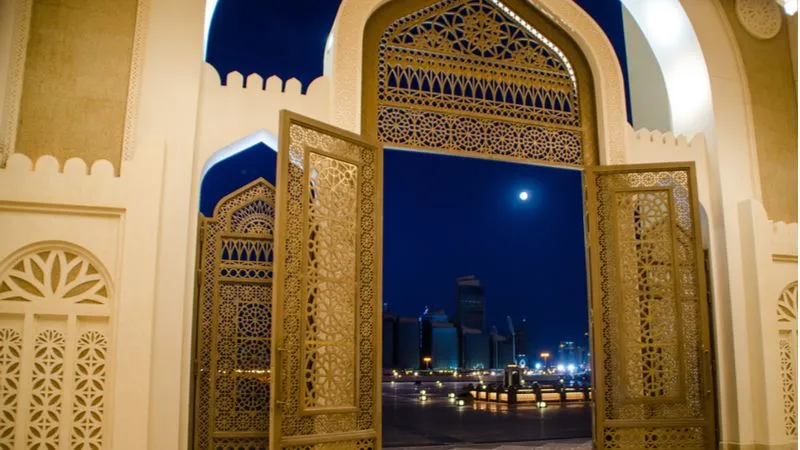
When it comes to going to the mosque Qatar for prayers, there are certain guidelines that have to be followed, which include:
- One can’t make any noise once they’ve entered the mosque and their cell phones have to be on silent.
- Honor the mosque’s sacredness and avoid improper conduct.
- Honor the sacredness of the mosque by sitting in a disciplined manner
- Honor and respect other visitors and prayer performers.
- Honor the sacredness of the mosque and prayer performers while taking photographs
- Footwear must be kept in the shoe racks provided outside the prayer halls.
- Food and beverages are not allowed inside the mosque; water to drink is available inside the mosque.
- People have to be responsible for their own belongings.
- In case people want to take pictures, they will have to get a written permission from the Mosque office.
- Children less than seven years of age are only permitted to enter the women’s prayer hall on the ground Storey.
Suggested Read: Culture Of Qatar: A Sneak Peek Into The Traditional Lifestyle Of The Locals
Rules For The Non- Muslims Entering The Mosque
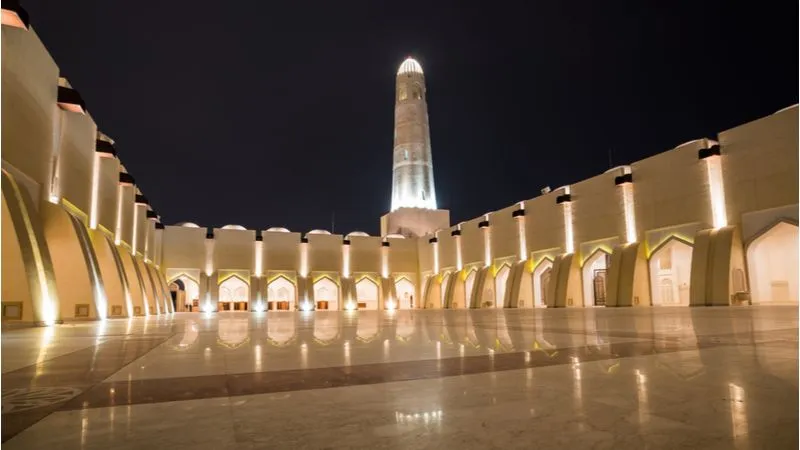
If you are not a Muslim and want to visit the mosque, there are certain guidelines that have to followed, which include:
- Entry to the mosque is restricted to the visiting hours
- Both men and women have to dress properly, which means, covering the whole body. Women will have to wear an abaya and headscarf.
- Honor the sacredness of the mosque and avoid improper conduct
- Try not to visit the mosque at prayer times.
- Take off your shoes and place them on the shoe racks.
- Don’t disturb the worshippers.
- Keep your mobile switched off when in the mosque premises
- Tourist groups, special visits and visits for discovering Islam, are to be planned according to required procedures two days before the visit, and in case of cancellation, the mosque should be notified accordingly.
- Food and beverages from outside are not allowed in the mosque; water to drink is available inside the mosque.
- Photographs are not allowed but in case you want to take, prior permission has to be taken.
The grand mosque Qatar is one of the holy places people should visit while on vacation. It is not something they should miss as it is a once in a lifetime opportunity. So, plan to book the best Qatar Cultural Tour package for a blissful holiday experience.
State Grand Mosque Qatar - FAQs
The state grand mosque Qatar was built in memory of Sheikh Jassim Bin Mohammed Al Thani’s father in 1978.
The Doha grand mosque boasts of its domes that was built with a blend of traditional Arabic and modern architecture, that includes a sparkling half-moon, a minaret and large outdoor spaces. It gives a fresh feel with crispy lines as it preserves some of the Islamic architectural elements with its fine doomed roof. The mosque is a fine example of architectural magnificence and landmark construction.
Entering the halls of the monumental structure of worship offers a spiritual feeling of calmness, tranquility and ideal well-being.
The mosque can accommodate over 30,000 people at one time.
Yes, non- Muslims can visit the mosque as long as they follow certain guidelines.
Both men and women have to dress properly, which means, covering the whole body. Women will have to wear an abaya and headscarf.
Photographs can be taken with prior permission from the mosque office.
There are certain visiting hours for the mosque, people can enter. They are not allowed during prayers.

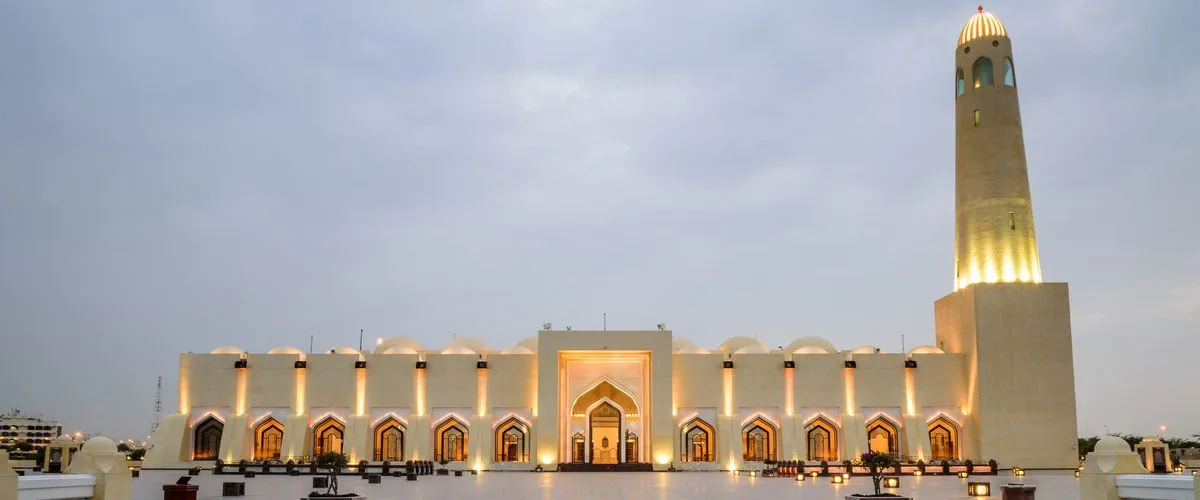
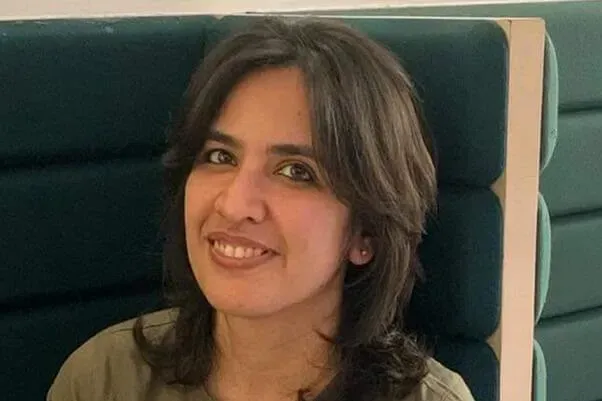

.webp)
.webp)
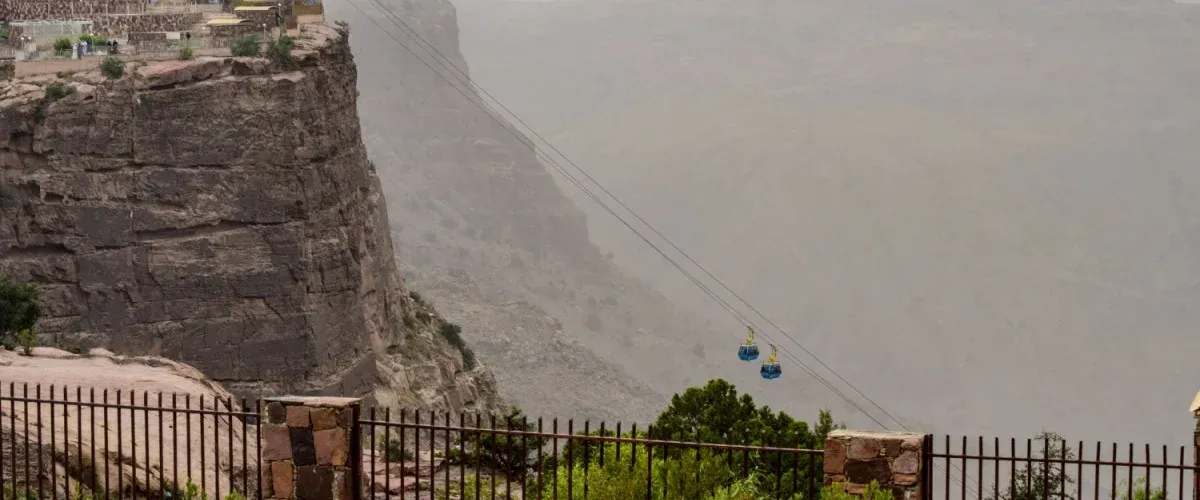
.webp)

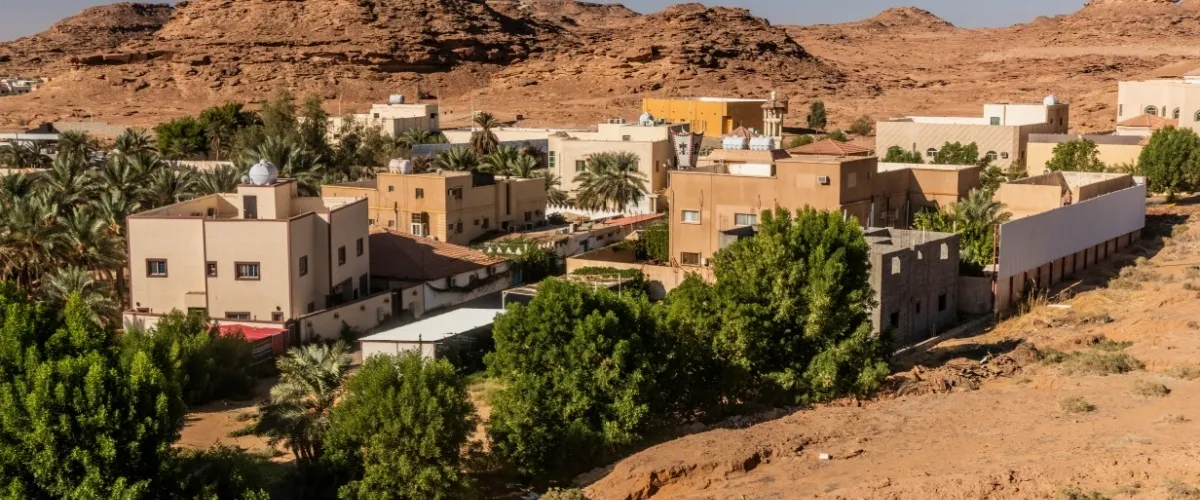
.webp)
.webp)
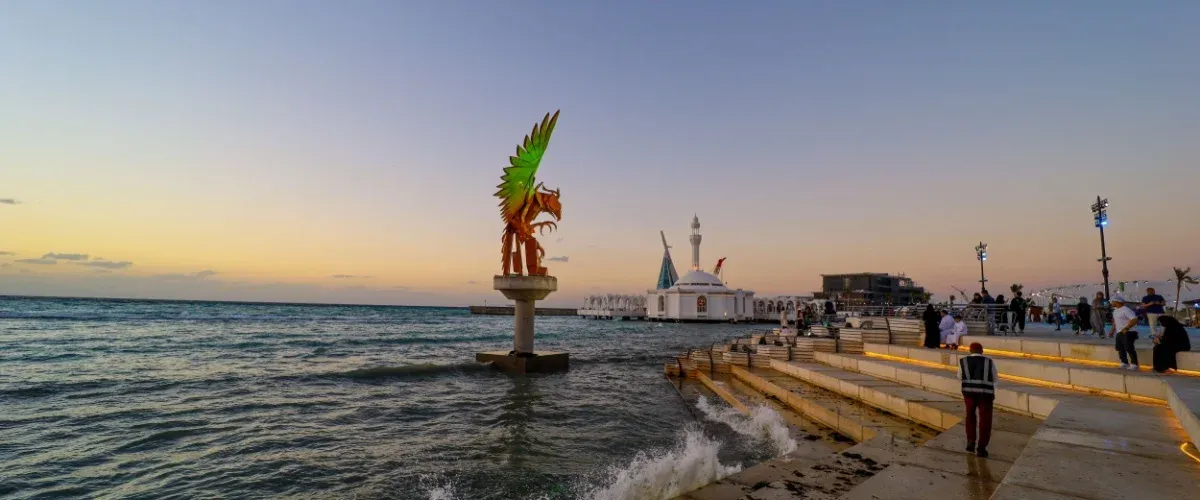
.webp)

